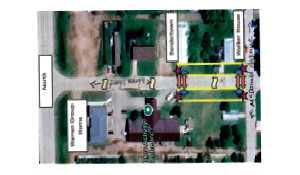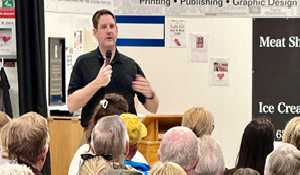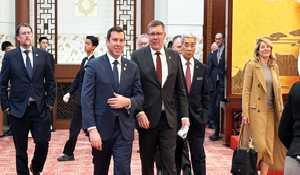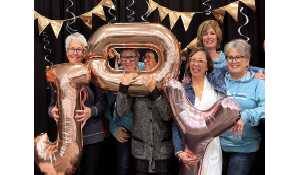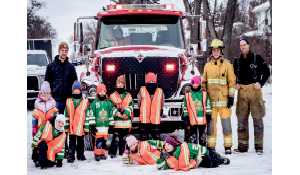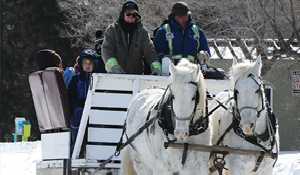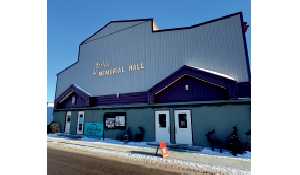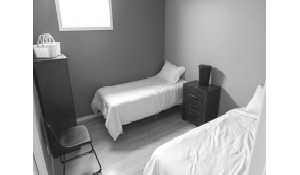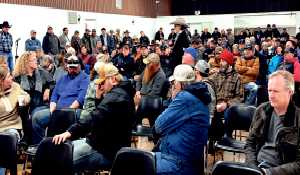MPs getting used to virtual sittings of parliament
May 18, 2020, 12:27 am
Rob Paul, Local Journalism Initiative Reporter
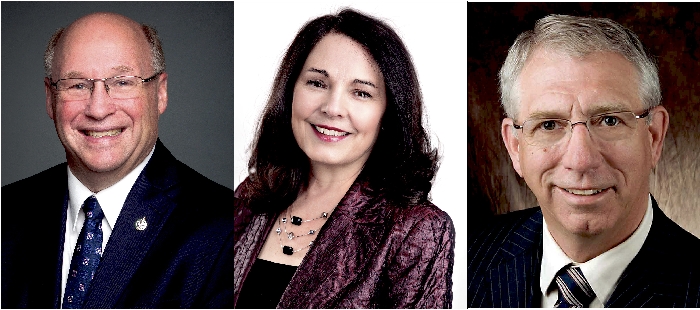

Three local members of parliament say they are adapting to virtual sittings of parliament and virtual meetings of parliamentary committees, but they see some serious flaws in the move to virtual meetings.
Three members of parliament for southeast Saskatchewan and southwest Manitoba say they are adapting to virtual sittings of parliament and virtual meetings of parliamentary committees, but they see some serious flaws in the move to virtual meetings.
Wagantall says virtual meetings have their flaws
“It’s working with the question and answer,” said MP for Yorkton-Melville Cathay Wagantall. “Where it’s a problem is this isn’t actually a sitting in the House of Commons, it’s a sitting of a committee on the Covid-19 crisis.”
“So what you have is kind of a mixture of how you run committee and how you run the House of Commons. It’s frustrating because it’s a committee and I have five minutes to ask questions—in person if I ask a question and I’m not getting the answer I want I can ask it over and over and we interact—in this case the speaker is trying to control the dynamic similar to a question period, but with this there’s no opportunity to interject and there’s no sense of real interaction. It’s very stifled.”
“In the House of Commons, too, with question period you really rarely get a true answer to a question and that is the speaker’s responsibility to make sure the answer is at least being approached. In committee we have more control over our questioning so it’s your opportunity to really pursue questions in a far better way, that’s difficult virtually.”
With the House of Commons already meeting in person once a week with a reduced number of MPs in the House, Wagantall wonders why they can’t meet more than once in that format.
“Quite honestly, I’m still of the mind that if we can meet once a week on the Hill on Wednesdays and then do virtual on Tuesdays and Thursdays, that if you make the trip there and we are exercising all the requirements of physical distancing and keeping everything clean, then why are we going all the way there for one day when we could be sitting for three instead of just one? We would have far better results,” said Wagantall.
Not being able to have discussions in person has fundamentally changed the way in which discussions can be had, says Wagantall.
“It’s better than nothing, but at the same time it’s very limiting and I know it’s hard for people who are watching it to sense that because you’re asking a question and they’re giving you an answer, but it’s far deeper than that,” said Wagantall.
“Humanity was not meant to function in isolation. A lot of the dynamics are really through our actions face-to-face and even though we’re separated across the floor, it’s a different dynamic when you’re in that room and just the sense of serving Canadians in that environment.”
On top of the struggles with the virtual meetings, Waganatall says, it’s been a non-stop grind with the work they’re trying to do during such a major crisis.
“This has been incredibly strenuous from day one,” said Wagantall. “Just working through what do these programs mean? They’ve announced them, but we don’t know the details and then we find out the details and they have to change.
“The angst among constituents and dealing with the pressures of all of that for them. Also all the other issues. It really is 24/7. There’s just so many things to be done and we need to stay on top of it, that’s our responsibility.”
Kitchen says switch to virtual meetings has been a major adjustment
It’s been a major adjustment going to the virtual method says Dr. Robert Kitchen, MP for Souris-Moose Mountain, but with more practice it has become smoother.
“It’s been interesting,” said Kitchen. “I’m on the health committee and because of that I’ve been involved with the virtual meetings since the middle of March because of what’s been going on. Obviously health committee on Covid-19 has been going on right since we returned to the house.”
“Basically we were the first group—health committee and finance—that were doing virtual committee meetings and we found with a lot of those committee meetings that for the longest time—usually committee meetings are two hours—were taking three or almost four hours. It’s a challenge, but it’s becoming easier to do it.”
The virtual meetings have created new issues due to technology causing set up problems and confusion says Kitchen.
“It’s a challenge, to get witnesses on board and every witness is coming from a different area so they’ve got different speakers, different microphones, and using different technology and that’s a challenge for just the administration people to make certain when it’s their turn to speak that they’re able to do so clearly,” said Kitchen.
“You’ve also got to throw in translation into that process and because the translators are hearing it over a phone or over a microphone sometimes they miss it, like if they said ‘atypical,’ but heard ‘typical’ and if that happens you get a total misconception of what was being said.”
“The challenge in committee—when you’re in committee asking questions of a witness after a presentation you can get that feel asking questions face-to-face—when you’re in virtual, because you’ve got to unmute your mic and then interrupt and it becomes a challenge dealing with that part of it,” said Kitchen.
For Kitchen and the Conservative Party, they’re hoping to have more in-person Parliament going forward because it’s hectic virtually and much harder to have your voice heard.
“As a caucus we’re asking to return to the House with three sittings where we can actually do it face-to-face,” said Kitchen. “By those sittings we weren’t actually talking about having all 338 of us there. We were talking about—as we’re doing now—recognizing that physical distancing within the House of Commons, but respecting the proportionality that we have. That’s what we were asking for and the government ended up saying one and two virtual.”
“The reality is, in committee we have 12-15 people and now throw 338 members of Parliament plus the clerk staff, interpretation staff, and it becomes a really big challenge.”
“With that said, we’re learning and everybody is going through the same thing, but it is interesting to go through,” said Kitchen. “We’ve got to move forward and I’m all in favour of moving forward with technology as long as my constituents are getting a chance to be heard.”
“As I’ve said from day one, and I’ll always say, the seat that I sit in isn’t my seat, it belongs to you and I’m just the person there to speak on your behalf and I just want to make certain that I’m speaking on what this riding is taking about and I need to be able to have that opportunity to say that while following the rules and recommendations that Parliament has set up.”
Maguire says no alternative to meeting virtually
With the continuing need to physical distance, Larry Maguire, MP, Brandon-Souris doesn’t want there to be confusion over the Conservative Party’s stance on going virtual.
“It doesn’t function as well as being there, but we can’t be there,” said Maguire. “Having said that, nobody would find it acceptable to have 338 of us in the House and nobody has asked for that either.”
“We don’t want to confuse that, the prime minister tried to make it look like the Conservatives wanted 338 people in the House, but that was never the case. We respect the distancing as much as anybody else in Canada and the fact that we are doing it and working from our homes is a testament to that.”
There are always going to be some issues to work around with the virtual method says Maguire.
“The virtual committees have worked and can work,” said Maguire. “I’ve been on those committees where people come in by video conference to give testimony on a particular issue where all parties get to ask them questions.”
“Virtual committee of the whole, there are still valuable questions that can be asked there, but there are certainly technical glitches with translation and sometimes it just shutting down and interrupting the whole process and flow of the discussion and the events that are taking place.”
Getting back into the House of Commons to some extent for Parliament is the ultimate goal says Maguire—who says the virtual Parliament just isn’t the same.
“It’s a far cry from being able to be in person and to have even the smaller Parliaments—there’s already been two days where we’ve had 35 persons in the house.”
“It certainly isn’t ideal and neither is the smaller Parliament where we get to sit in the House and ask questions,” said Maguire. “But being in the house and asking questions is by far the most valuable and where most of the results can be found. Keep in mind these are committee’s of the whole House on coronavirus and that’s strictly where the agenda for these meetings is at and not for asking other questions of Parliament.”


